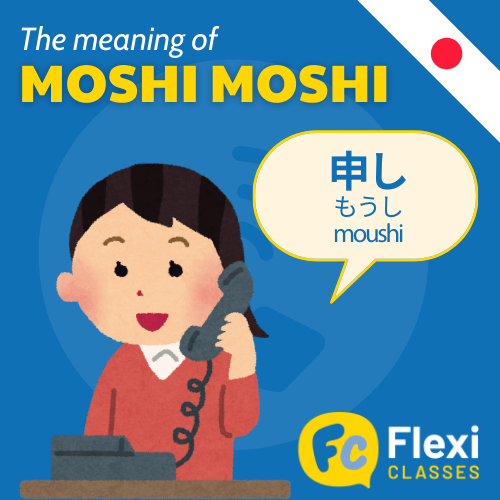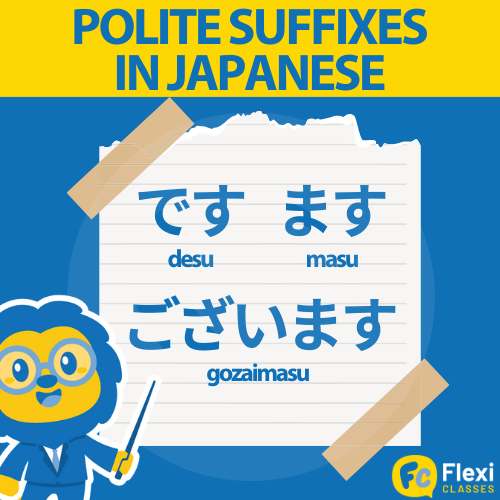Moshi Moshi Meaning // Origin, How to Use It and Why Honorifics Matter
Pick Up the Phone, Japanese is Calling 🤳 Moshi Moshi Meaning
If you’ve ever watched a Japanese movie, anime, or perhaps had a Japanese friend, you’ve likely encountered the term “moshi moshi”. For those unfamiliar with Japanese culture or language, “moshi moshi” may seem strange, yet it holds a peculiar place in the realm of Japanese communication.

The word もしもし . “moshi moshi” is now used only when talking on the phone. It is used in voice-only calls to ask if the other party is on the line, but when used in other situations, it can imply mockery or provocation.
When you say it to someone’s face, it gives the impression that you are contemptuously asking them if they are hearing you or understanding what you are saying. 😬
As a special case, it may be used to call out to a person who is in a coma. It is used to call out to a stranger who appears to be unconscious. As will be explained later, this expression used to be common, but is now used only in very limited situations.
In this article, we will look at the expression “moshi moshi” and then explain the concept of honorifics, which are important for understanding this.
Moshi Moshi Meaning || What the Term Derives From
Moshi Moshi Meaning || Greatest Difficulty in Japanese : Keigo
Moshi Moshi Meaning || Language Changes and Evolves
Moshi Moshi Meaning || FAQs
Moshi Moshi Meaning || What the Term Derives From
“Moshi moshi” was originally a repetition of ‘moushi’ – 申し もうし , which is a humble version of ‘I say’ 言う いう .

The reason for saying it twice is said to be because the quality of communication lines was poor in the old days, and repeating the same word twice was an attempt to make sure that the line is active.
In 1890, Japan’s first telephone line was opened between Tokyo and Yokohama. At that time, there was a telephone operator who used this term to confirm that the line was connected to the called party.
In the past, it was often used to talk to strangers outside of the telephone, but today it is rarely used except in the aforementioned situations.
👉 Some consider it inappropriate for use on the telephone in business situations. This is because it is considered impolite to use such a word with one’s boss, etc. and in Japanese society, the more humble: the better.

Japanese Greetings // 31 To Use For Daily Life in Japanese
Japanese Greetings // Want to learn Japanese? These greetings in Japanese can range from casual ones with your friends and also more formal greetings.
Now, what is a humble language?
Moshi Moshi Meaning || Greatest Difficulty in Japanese: Keigo
One of the difficulties of the Japanese language is keigo (honorifics).
There are three types of honorifics: honorific language, humble language and polite language.
Honorific languages are words used with respect for the other person, humble languages are words used with humility, and polite languages are simply used to make the tone of the words more polite.
Honorific language include the following:
| JAPANESE | ROMAJI | ENGLISH |
| おっしゃる | ossharu | say |
| いらっしゃる | irassharu | come |
| なさる | nasaru | do |
| おいでになる | oide ni naru | come |
| ご足労いただく ごそくろういただく | gosokuro itadaku | come |
| speak 召し上がる めしあがる | meshiagaru | eat |
| ご覧になる ごらんになる | goran ni naru | look |
| お召しになる おめしになる | omeshi ni naru | wear |
Examples:
| JAPANESE & ROMAJI | ENGLISH |
|
あなたのおっしゃるとおりです。
anata no ossharu toori desu. | What you say is right. |
| 何時にいらっしゃいますか? なんじにいらっしゃいますか? nanji ni irasshai masuka? | At what time will you come? |
| 休日には何をなさっていますか? きゅうじつにはなにをなさっていますか? kyuujitu niwa naniwo nasatte imasuka? | What do you do on holidays? |
| ご足労いただきましてありがとうございます。 ごそくろういただきましてありがとうございます。 gosokurou itadakimashite arigatou gozaimasu. | Thank you for coming. |
| 夕食に何を召し上がりますか? ゆうしょくになにをめしあがりますか? yuushoku ni nani wo meshiagari masuka? | What do you eat for dinner? |
| こちらをご覧ください。 こちらをごらんください。 kochira wo goran kudasai. | Please look at this. |
These honorific languages are used to show respect towards others, particularly when addressing or speaking about someone of higher status or in a position of authority. This form of language elevates the subject by using specific words and phrases that denote respect.
The humble language includes the following:
| JAPANESE | ROMAJI | ENGLISH |
| いただく | itadaku | polite suffix |
| 申し上げる もうしあげる | moushi ageru | say, talk, speak |
| 参る まいる | mairu | come |
| 差し上げる さしあげる | sashiageru | give |
| 存じ上げる ぞんじあげる | zonji ageru | know |
| 拝見する [speak はいけんする | haiken suru | look |
| 拝聴する はいちょうする | haichou suru | listen |
Examples:
| JAPANESE & ROMAJI | ENGLISH |
| 書類を送っていただきありがとうございます。 しょるいをおくっていただきありがとうございます。 shorui wo okutte itadaki arigatou gozaimasu. | Thank you for sending me the documents. |
| 私から申し上げます。 わたしからもうしあげます。 watashi kara moushi agemasu. | I will talk about that. |
| 7時に参ります。 7じにまいります。 shichiji ni mairimasu. | I will come at 7. |
| こちらを差し上げます。 こちらをさしあげます。 kochira wo sashiagemasu. | I’ll give it to you. |
| それについては存じ上げません。 それについてはぞんじあげません。 sore ni tsuite wa zonjiagemasen. | I don’t know about that. |
| こちらを拝見してもよろしいでしょうか? こちらをはいけんしてもよろしいでしょうか? kochira wo haiken shitemo yoroshii deshouka? | May I take a look at this? |
| 講義を楽しく拝聴いたしました。 こうぎをたのしくはいちょういたしました。 kougi wo tanoshiku haichou itashimashita. | I enjoyed listening to your lecture. |
These humble languages are used to humble oneself and elevate the listener, thereby showing respect and deference.

Humble language is commonly used when referring to one’s own actions or the actions of people within one’s own group, especially when interacting with someone of higher status.
Mastery of humble language can be challenging because it requires not only a deep understanding of the language but also an awareness of social hierarchies and relationships.
Proper use of humble language is essential for showing respect and maintaining good manners in Japanese society.
Polite language includes the following:
です desu
ます masu
ございます gozaimasu
Unlike honorific and humble languages, which are used to show respect or humility towards others, polite language is used to make speech more polite and formal, regardless of the listener’s social status.
In many cases, the above words are added at the end of a word to increase politeness.
| これだ ➡️ これです あれだ ➡️ あれでございます ある ➡️ あります |
The distinction between these expressions is a difficult one even for the Japanese, and there are some expressions that are incorrect but are accepted as customary.
However, using correct honorifics is very important in Japanese society. Honorifics not only show respect to others, but also indicate one’s own good manners.

The use of honorifics is complex and varies depending on the situation and the relationship with the other party, but it is essential for building better relationships.
In the days of the samurai, the formal honorific expression was called 候文 そうろうぶん sourou bun. It was called that way because they added 候 そうろう sourou at the end of each sentence.
Even older, in the Heian period, the following honorifics were also used.
きこしめす
eatしろしめす
knowおぼしめす
thinkMoshi Moshi Meaning || Language Changes and Evolves

As we have seen above, honorifics also change with the times. It is no different from language itself.
It will be interesting to see how “Moshi Moshi” continues to be used in the future. Technological advancements have diversified the means of communication, with video calls and chat applications becoming more prevalent.
Therefore, the use of “Moshi Moshi” may decrease in frequency.
However, language will live on as a part of culture, and “Moshi Moshi” will be passed on to the future in some form or another as a symbol of Japanese telephone culture.
That’s all for this article!
Honorifics are one of the most difficult parts of the Japanese language. Not only by acquiring knowledge, but also by watching Japanese dramas and movies, talking with native speakers, and gaining a lot of practical experience, you will finally understand it.
Let’s study hard!
Do you think the days of saying Moshi Moshi are numbered? We’d love to hear your opinion here!

A Complete Guide to Learn Japanese with Songs (+ List of Best Songs)
Just like with movies and TV shows, you can learn Japanese with songs! Check out our step by step guide and a list of the best songs to listen.
FREQUENTLY ASKED QUESTIONS
What does moshi moshi mean?
Moshi moshi is a Japanese greeting used to pick up the phone.
“Moshi moshi” was originally a repetition of ‘moushi’ – 申し (もうし), which is a humble language of ‘I say’ 言う (いう). It is not used in face-to-face conversations.
Can I say moshi moshi to someone in person?
It’s best to avoid saying ‘moshi moshi’ to someone’s in person. When you say it to someone’s face, it gives the impression that you are contemptuously asking them if they are hearing you or understanding what you are saying – not a great way to start a conversation!
What are honorifics in Japanese?
Honorifics are used to show respect to others. There are 3 types of honorifics: honorific language, humble language and polite language.
What is honorific language?
It is used to show respect towards others, particularly when addressing or speaking about someone of higher status or in a position of authority. This form of language elevates the subject by using specific words and phrases that denote respect.
What is humble language?
It is used to humble oneself and elevate the listener, thereby showing respect and deference. Humble language is commonly used when referring to one’s own actions or the actions of people within one’s own group, especially when interacting with someone of higher status.
What is polite language?
It is used to make speech more polite and formal, regardless of the listener’s social status.
How often is “moshi moshi” used?
The word “moshi moshi” is now used only when talking on the phone.
Want More From LTL?
WANT TO LEARN JAPANESE? Check out our online Japanese courses here.
We offer a 7-day free trial to all new students where you can study 24/7.
What about studying Japanese in Japan instead? We’ve got your back. Our Japanese courses in Tokyo can either be taken in small groups of no more than 5 students or individually for a more tailored experience.
We even offer incredible homestay experiences in Tokyo as well.
Come and be a part of this amazing community.











